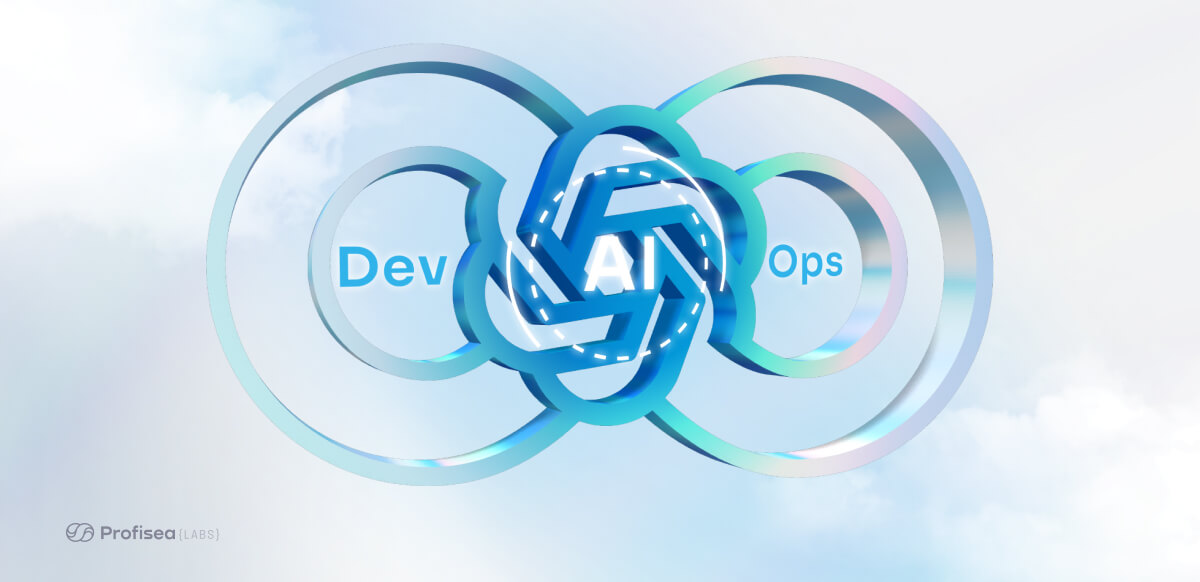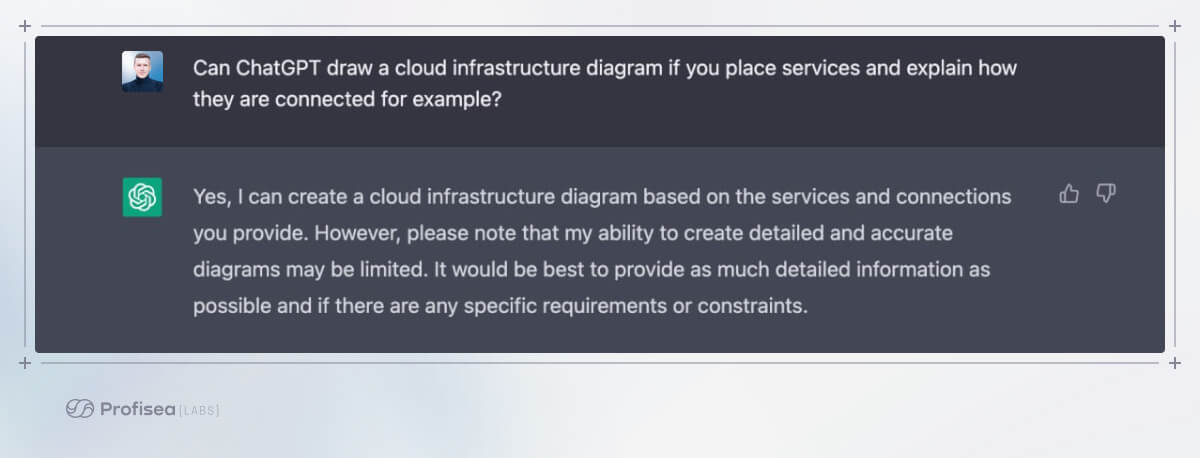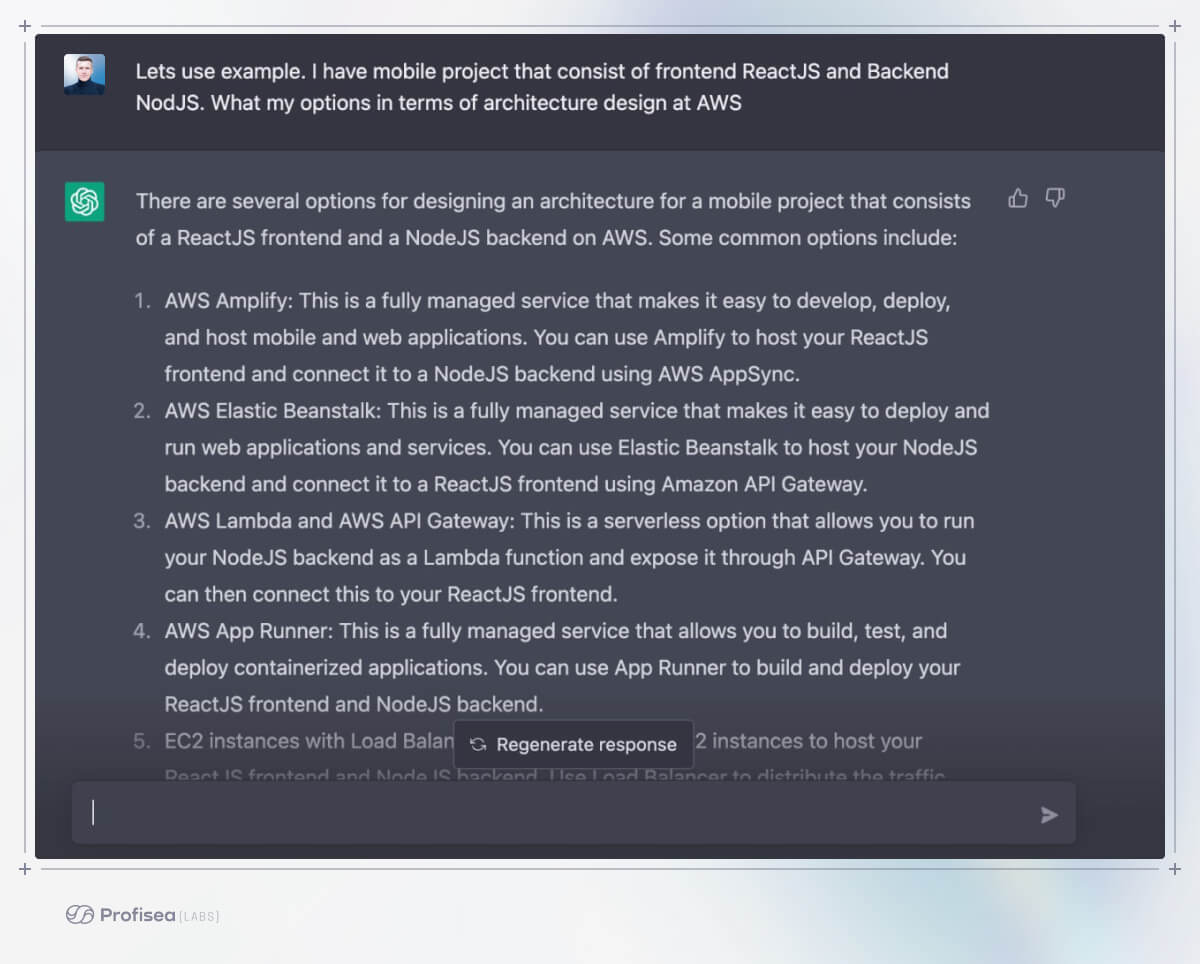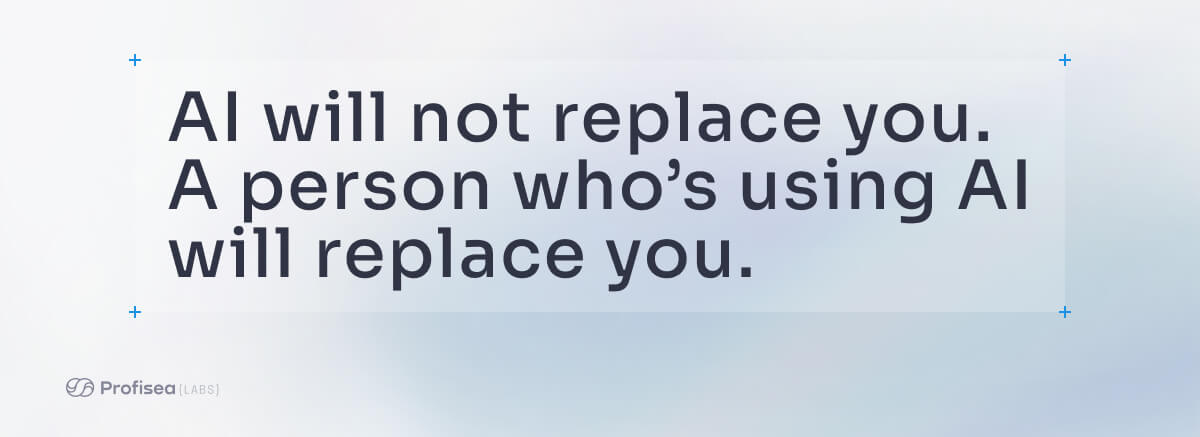
Can ChatGPT ruin DevOps? Cloud Expert explains and gives tips
ChatGPT, a state-of-the-art language model or AI-powered writing tool authored by OpenAI, has quickly generated buzz as a valuable instrument for DevOps and developers. ChatGPT’s ability to understand and create various text forms, including code, makes it a generic and powerful tool for automating DevOps-related tasks and streamlining workflows. In light of the astonishing rise of this exciting AI technology, we have decided to share some ideas on how to use ChatGPT, how it can be helpful for DevOps, and, most importantly, what to avoid when drawing on the support of this AI-fueled copilot.
Artificial Intelligence: Valuable facts
Before we dive deeply into a particular AI-based miracle such as ChatGPT, let us set out some Artificial Intelligence facts worth mentioning.
Artificial Intelligence (AI) is rapidly becoming a driving force in the global economy, with the market forecasted to reach $401 billion by 2027. This growth is driven by advances in technology and the increasing availability of data, which allows businesses and organizations to harness the power of AI to improve efficiency, reduce costs, and drive innovation.

Source: marketsandmarkets.com

What is GPT?
GPT (Generative Pre-trained Transformer) is a language model that uses machine learning techniques to produce natural language, highly coherent and resembles human text.
What is GPT-3?
GPT-3 (Generative Pre-trained Transformer 3) is an advanced language generation model that uses deep learning techniques to create human-like text and can understand and respond to a wide range of natural language inputs. GPT-3 is considered one of the most powerful language models currently available and can perform various assignments like language translation, text summarization, and question answering with a high degree of accuracy.
What is ChatGPT?
ChatGPT, based on the ChatGPT, is a smaller version of GPT-3, designed for conversational understanding and generation, rather than the wide range of tasks that GPT-3 can perform. It still uses the same underlying architecture and pre-training as GPT-3, but it has been adjusted for specific conversational tasks.
ChatGPT and DevOps
In scenarios where the main mission of DevOps is to increase application and service quality and delivery speed, it can benefit from ChatGPT support in complex enterprise environments.
Among the benefits of using ChatGPT in a DevOps environment are:
- Documentation creation. The model can quickly generate detailed documentation for new systems and applications.
- Troubleshooting. The model can quickly troubleshoot and diagnose issues by understanding and responding to natural language queries.
- Automation. ChatGPT can also automate repetitive labor, such as creating and managing tickets and generating reports.
- Code fashioning. AI-powered chat suggests code snippets, creates code based on input provided, refactors code, and analyzes it to identify vulnerabilities.
- Chatbots are designed to serve as the first point of contact for customers, answering questions and resolving issues.
How Profisea Labs Experts use ChatGPT: Tips form DevOps
ChatGPT for code/scripts templates creation
“I use ChatGPT to write code/scripts, including Dockerfiles, Kubernetes manifest files, Terraform, Python, Bash, cURL, Ansible, CI/CD pipeline templates creation,” said Anton Grishko, Profisea Labs Chief Solutions Architect. “And then I fine-tune, customize them respectfully the project specifications. Unfortunately, the chat does not always give the right code, and sometimes the code does not fit the project. It needs to be checked and updated by an experienced DevOps.”
Tip 1 – You can use ChatGPT to fashion code but only in the form of a template or basic draft, ready to be updated and fine-tuned. Please do not copy it as it is! Errors and inconsistency issues may compromise the quality of your solution and cause damage to your reputation. For example, Stack Overflow, the devs’ platform, banned code AI-generated because it contained errors and misled people.
ChatGPT for text content
“I also use ChatGPT to write articles, speeches, or presentations. Additionally, the chat is great for self-education, for example, learning any programming language,” says Anton.
Tip 2 – You can use ChatGPT to create all kinds of texts for reports, documentation, presentations, and even for articles, but do not forget that Google never allows poor-quality content. Indeed, Google, in its helpful content update (HCU) in December 2022, announced its intention to specifically target low-quality content created for search engine rankings rather than informative value. So, experts need to put a lot of sweat into creating unique and valuable content.
ChatGPT for visualization
“Handling visual issues like diagrams, etc., is not ChatGPT’s forte,” says Anton. “For example, say you need to calculate how to place titles of different sizes in a rectangle of certain parameters. Chat thinks logically but cannot draw it. In other words, although what appears in text may be good, the software is not very good at drawing relatively simply images, and certainly not cloud architecture diagram”

Tip 3 – With ChatGPT, you can get an explanation in text of how your cloud infrastructure would look and get some generic advice as can be seen below:

However, considering ChatGPT could be more useful in cloud architecture diagram designing, it is essential to turn to cloud management platforms capable of clearly visualizing the cloud environment elements and their dependencies.
ChatGPT for data extraction in Q/A form
“You can ask ChatGPT anything, and you will get an informative answer,” claims Anton. “By anything, I mean ANYTHING like, recently I asked for a chicken recipe or wanted to calculate my bank expenses in Excel. So, the chat wrote a script for Excel to pull the bank account data automatically.”
Tip 4 – Ask questions to learn new information or get advice, but be careful with wording and formulation. ChatGPT doesn’t like arguing, and if there is even a small likelihood of the words having alternative meanings, the chat will apologize and switch to your side. For example, the simple equation 2+2 which, you’ll never believe, has alternatives, as this example shows:

ChatGPT for a productivity boost
“The chat significantly increases personal and team productivity.” continues the Profisea Labs expert. “You can get quick advice or create code/documentation within minutes, which notably saves time. But there is a downside – the quality of a code or text may become inferior. I, as a team leader, am quite worried by this fact as the hoped-for ‘productivity boost’ of my team may lead to poor quality in any task they perform.”

Tip 5 – Use ChatGPT to accomplish your tasks faster but do try to adapt and refresh the code/test, or else there will be a lot of lookalike and poorly written content items. In other words, don’t allow high productivity to lead to poor performance.
AI Scheduling from Uniskai – Trustworthy AI technology
Designed to handle cloud costs, Uniskai by Profiea Labs helps customers visualize their cloud infrastructure and save up to 75% by utilizing a toolkit of saving features like rightsizing, reservation, spot management, and many others, including AI-based scheduling.
Our AI-powered scheduler (Cloudsitter) studies user behavior patterns and provides unique smart scheduling recommendations to make cloud budget savings by scheduling automated hibernation for your resources.

Final thoughts
ChatGPT (and other AIs) will revolutionize our lives, but human experts are still relevant. Along with the benefits, the growth of AI also raises important ethical questions, like the impact on performance and privacy.
Those who use ChatGPT as an assistant or so-called copilot will leave others behind. But there’s a need for regulatory frameworks that ensure AI’s safe and responsible utilization and for research to better understand its potential impact on personal and team performance.
So, answering the question of whether ChatGPT can ruin DevOps – No, of course, it cannot. However, the chat can help DevOps engineers, given responsible utilization, boost performance.
If you have any DevOps-joined questions, feel free to contact us via our chat.